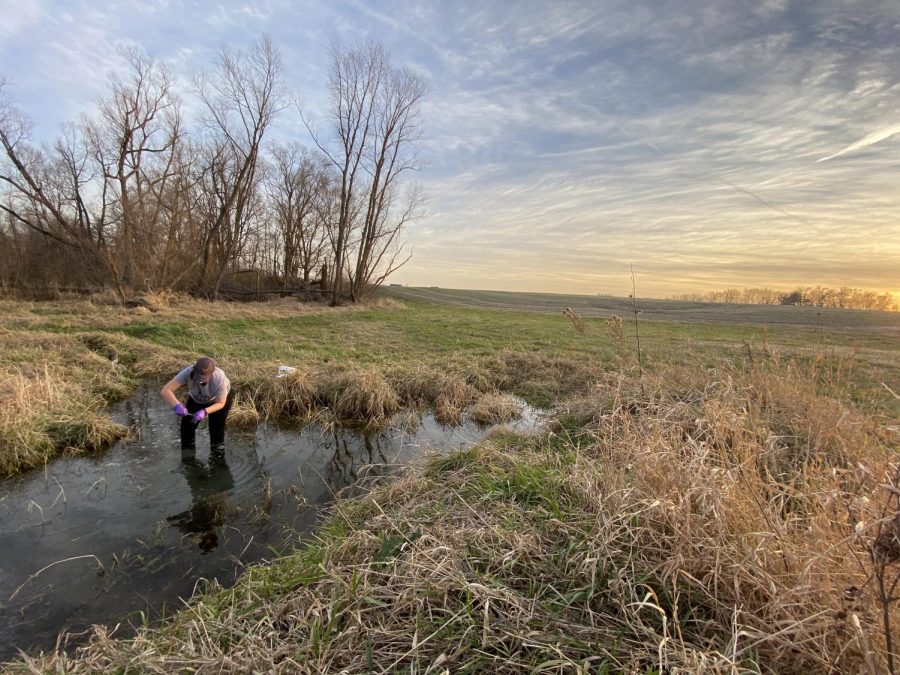UI graduate assistant finds bacterium to improve farming
University of Iowa Graduate Research Assistant Emily Schmitz found a bacterium that may help decrease water and air pollutants caused by farming.
Contributed photo of University of Iowa Graduate Research Assistant Emily Schmitz conducting her research.
May 1, 2022
University of Iowa Graduate Assistant Emily Schmitz has found a bacterium that can help make farming more eco-friendly.
Using this specific bacterium may help farming, as it can consume toxic chemicals like nitrate and methane.
Schmitz presented her research at the Three Minute Thesis competition, where UI students are evaluated based on how well they can communicate their complex research to a non-expert audience in a short amount of time.
Despite the challenge of compressing her 100-page thesis into a three-minute presentation, Schmitz said participating in the competition was helpful.
“I feel like, if we’re ever going to get anything done, we have to be able to communicate our science effectively,” she said.
Schmitz said she hopes to complete her research by the time she graduates in 2024.
Graduate Research Assistant for IIHR Matthew Nagorzanski, Schmitz’s colleague who has also participated in the competition, commended Schmitz for her submission.
“Schmitz is a great researcher and a great student,” Nagorzanski said. “When I was watching her video, what really stuck out to me is just the passion that she brings to her research.”
UI Associate Professor Craig Just said Schmitz navigated challenges while conducting her research. Labs were closed for almost four months in 2020, impacting her work with the Iowa Geology Survey, Johnson County Historic Poor Farm, and Iowa Valley Resource Conservation and Development.
Just said the treatment process Schmitz is trying to optimize requires land that is managed in a specific way.
“Iowa has a lot of tile — that’s about two million miles,” he said. “That’s enough to go to the moon and back four times.”
Tile, a system to drain water from fields, short-circuits nature’s natural ability to treat nitrogen in the soil profile. The Johnson County Historic Poor Farm has tile water control structures.
“We can manipulate the water table in the soil to essentially engineer for these types of organisms that Emily’s trying to work with,” Just said.
He said the system is not available widely across Iowa. Many farmers can’t optimize in the way that Schmitz does.
“We’ve also been working with the Iowa Geological Survey,” Just said. “They put in monitoring wells and got the soil cores that Emily needed to hunt for that DNA to search for this class of organisms.”
Iowa Valley Resource Conservation and Development and Grow Johnson County helped by offering the field site for research.
“Schmitz is a powerful combination of scientific knowledge and community engagement in public speaking,” Just said.
Schmitz said bacteria serve a vital role in people’s daily lives by keeping the climate and humans happy and healthy.
“There are bacteria out there in the world and the soils, and we need to think of more sustainable farming practices for bacteria processes,” Schmitz said. “If we can move forward like that, I think it will be just fine.”






